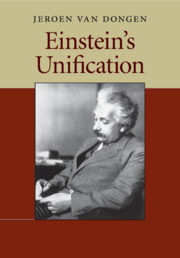Book contents
- Frontmatter
- Contents
- Acknowledgments
- Introduction
- 1 Formulating the gravitational field equations
- 2 On the method of theoretical physics
- 3 Unification and field theory
- 4 Experiment and experience
- 5 The method as directive: semivectors
- 6 Unification in five dimensions
- 7 The method and the quantum
- Conclusion
- References
- Index
4 - Experiment and experience
Published online by Cambridge University Press: 05 May 2013
- Frontmatter
- Contents
- Acknowledgments
- Introduction
- 1 Formulating the gravitational field equations
- 2 On the method of theoretical physics
- 3 Unification and field theory
- 4 Experiment and experience
- 5 The method as directive: semivectors
- 6 Unification in five dimensions
- 7 The method and the quantum
- Conclusion
- References
- Index
Summary
Even though Einstein had proclaimed in Oxford that “all knowledge of reality starts from experience and ends in it,” we have seen that philosophically, more or less, he gradually moved from empiricism to realism, while his research became dominated by the unified field theory program. As we just saw, the program was criticized as it seemed to recede from the world of experience. This aspect, however, was identified by Einstein as a general trait of the search for unification. One may recognize it in the diagram that we drew in the preceding chapter, Figure 3.1: the distance between the concepts employed at the most fundamental level (A′) and direct experience (E) grows. The unified theory “pays for its higher logical unity by having elementary concepts […], which are no longer directly connected with complexes of sense experiences.” Einstein found this evolution perhaps to be regrettable, but nonetheless something that one can only resign oneself to.
A superficial glance at Einstein's professional career seems to reinforce further the image of the scholar who withdrew ever more into the ivory tower of mathematical principles: Einstein started off examining technological patents in the Bern patent office, yet ended as the sage who intuited unification axioms in the School of Mathematics of Princeton's Institute for Advanced Study.
- Type
- Chapter
- Information
- Einstein's Unification , pp. 75 - 95Publisher: Cambridge University PressPrint publication year: 2010



